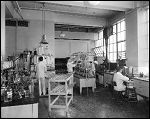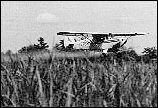“In the war’s aftermath, Americans came to equate the ideals of a democratic society with the successes of modern capitalism. Capitalism became the very embodiment of the triumphs of modern life itself. For many with vivid memories of economic hardship, wrought by the depression and the stresses of war, freedom meant the ability to share in the nation’s abundance. Abundance was defined primarily in economic terms, inextricably tied to the purchase of consumer goods.” [BA]
“Over the last generation, the reliance on scientifically based techniques for workplace efficiency and for professional practice radically accelerated the erosion of craft. It changed the experience of work. A technical approach that became a culture, weakened workplace social networks, fragmented work roles, and stripped many jobs of more complex skills combining intellectual with manual tasks.” [BA]
"Craft weds imagination with manual effort. In professional settings, craft integrates techniques with a way of thinking that includes judgment. It is an artful capacity to appreciate context, timing, patterns of human relationships, and multiple points of view. This sense of dignity, power and visibility has vanished from a myriad of workplace settings." [BA] |
|
|
Transitions from
Producer to Consumer

Cabin cruiser on Lake Pepin, August 1980
Photo by John Walstrom. Minnesota Historical Society

General Mills Laboratory, seventh floor, 1930’s
Photo by Lee Brothers. Minnesota Historical Society

Low-flying plane sprays a wild-rice paddy, ca. 1970
Photo by Bill Burnson. Minnesota Historical Society
|







